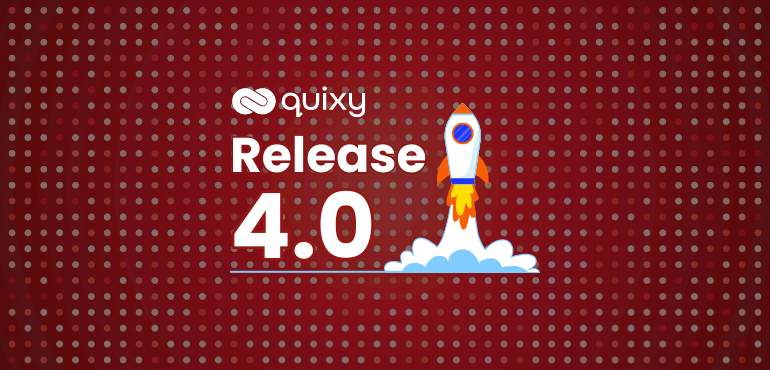
Anomaly Detection vs. Traditional Monitoring: Why Caddie is the Future
Reading Time: 4 minutesIn today’s data-driven world, businesses need more than just alerts—they need context and insights before reacting to system issues. Traditional monitoring tools flood teams with notifications, forcing them to sift through noise to find what matters. Enter Caddie, Quixy’s AI-powered assistant, which redefines anomaly detection by generating structured reports and then analyzing them for deviations.

Master Advanced Email Configuration: Set Up Multiple ‘From’ Addresses with Ease
Reading Time: 5 minutesManaging email notifications effectively can be challenging, particularly when relying on a single, organization-wide email address. This often results in limited customization options, leading to potential confusion and reduced effectiveness of your communications across different teams and recipients. With Quixy’s latest feature, you can now customize email notifications more efficiently. This Advanced Email Configuration allows

ER Diagram View: Master Quixy Data Visualization Effortless
Reading Time: 5 minutesDo you know that ER Diagram and Information Modeling have a long history? However, this ever-growing data management landscape was popularized in 1976. Understanding data table relationships is key to efficient database administration and insight generation. Quixy’s ER Diagram View takes this further by providing a clear and visual representation of the data tables, allowing users to quickly

Workflow Automation in 6 simple steps with No-Code
Reading Time: 3 minutesWith changing times and the onset of digital practices, it was only a matter of time before paper-based and manual processes were set to be eradicated. Not only are these processes complex and time-taking, but due to the scope of human error, the desired result is often compromised. Not to mention the grunt-work, limited control,

Build & Deploy Apps in a Snap with Quixy’s Snap2App feature
Reading Time: 4 minutesDigital Transformation is so widely used that businesses hardly put their energy into defining their end goals before jumping on the bandwagon. Companies are hastily grabbing technologies without proper planning and getting counterproductive results. There are two schools of thought when it comes to DX. One believes DX is about making things better with technology,

Customizable Branding with Quixy: Empower Your Brand
Reading Time: 4 minutesAre you struggling to establish a strong brand identity and stand out in a crowded market? Say goodbye to generic solutions and hello to the power of customizable branding with Quixy. Whether you’re a start-up looking to create a unique identity or an established business aiming to refresh your brand image, Quixy’s customizable branding tools

Streamlining Business Rules and Validations in Quixy
Reading Time: 4 minutesBusinesses seek agile solutions to automate processes, enhance productivity, and ensure compliance. Quixy, a revolutionary no-code platform, offers a versatile toolkit for businesses to streamline their operations seamlessly. Among its myriad features, Quixy empowers users to define and enforce application business rules and validations efficiently. In this blog post, we delve into the significance of

Quixy’s Solution View : Unlocking Artifact Interconnections
Reading Time: 3 minutesAre you encountering difficulties in effectively visualizing and managing interconnected artifacts across your platform? Are you seeking clarity on dependencies between various artifacts to streamline processes? With the advent of Quixy’s Solution View feature, organization admins or workspace admins no longer need to rely solely on memory or guesswork to track, monitor, and understand the

Quixy’s Sandbox & Thematic Forms: A Paradigm Shift in Development and Deployment!
Reading Time: 4 minutes“Sandbox is a game-changer for anyone who wants to automate processes With precision, innovation, and zero fear.” – A happy Quixy user Worried about buggy deployments and disrupting users? Stop sweating and start innovating with Quixy’s Sandbox! Forget clunky development and nerve-wracking deployments – Sandbox is your playground for fearlessly building and perfecting automations that

Quixy Release 4.0 (December 2023) Platform Updates
Reading Time: < 1 minuteRelease 4.0 is here! We are incredibly excited to share new and exciting features in this release, along with a revolutionary feature, Sandbox. Refer to our detailed Release Notes. Watch the release highlights. Improvements in Web Application Quixy Sandbox Unleashed: Empower Creativity, Ensure Reliability! Revolutionize your Quixy experience with Sandbox, a game-changing feature that transforms how you develop and deploy artifacts in process













